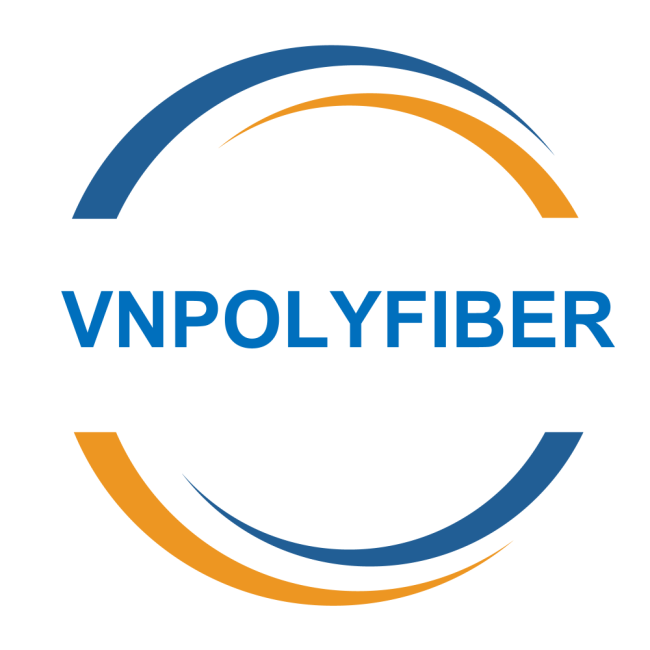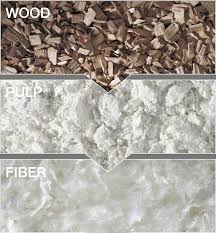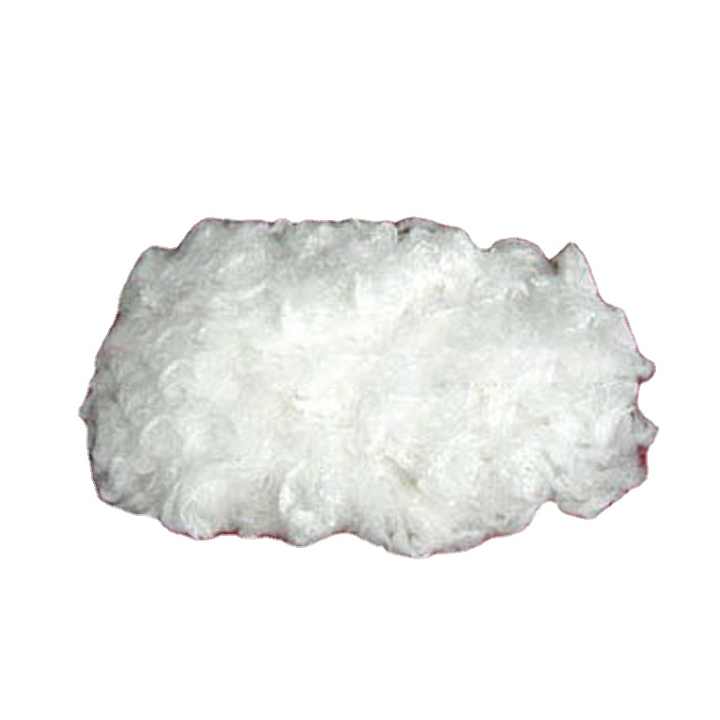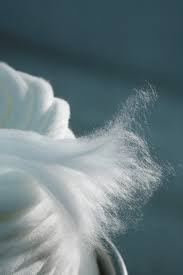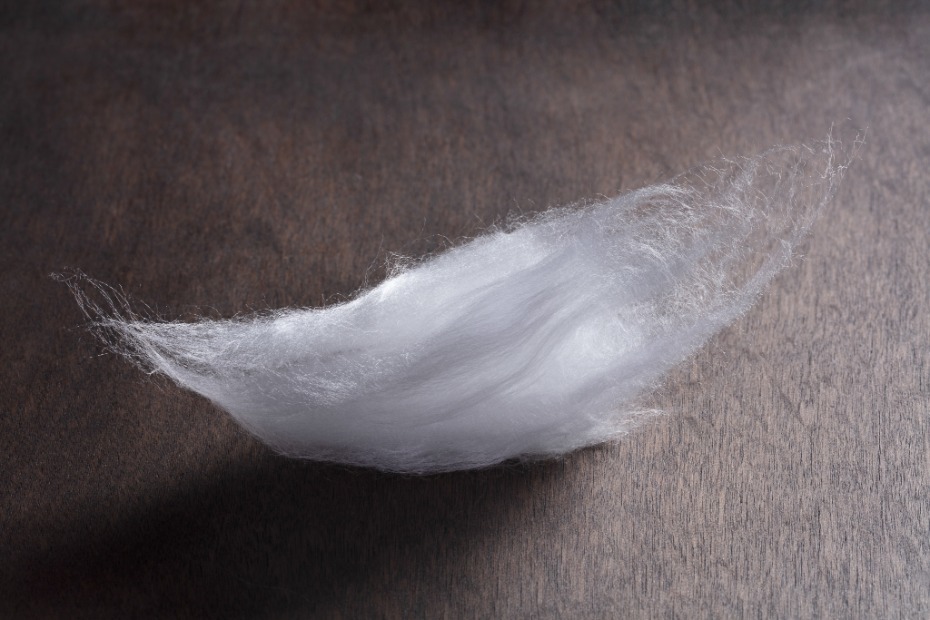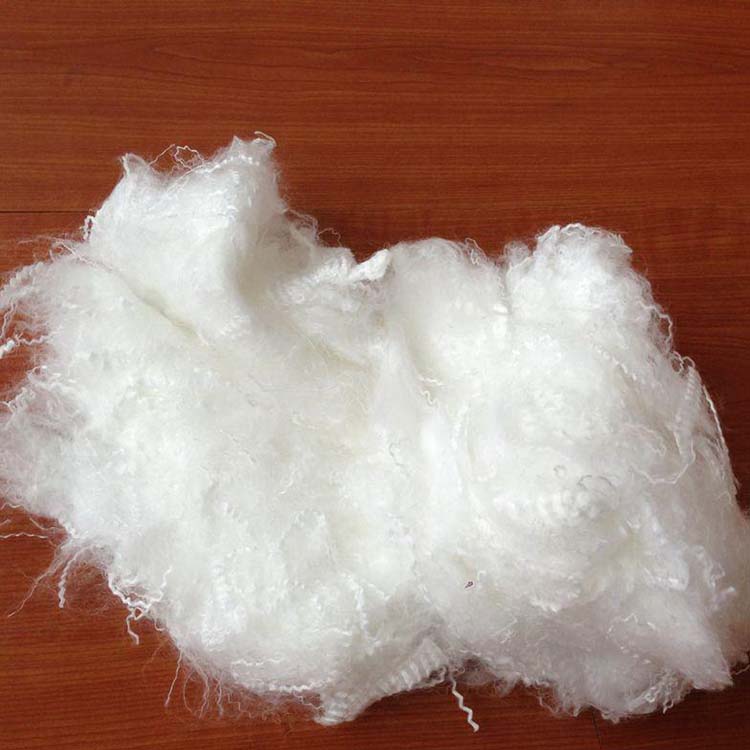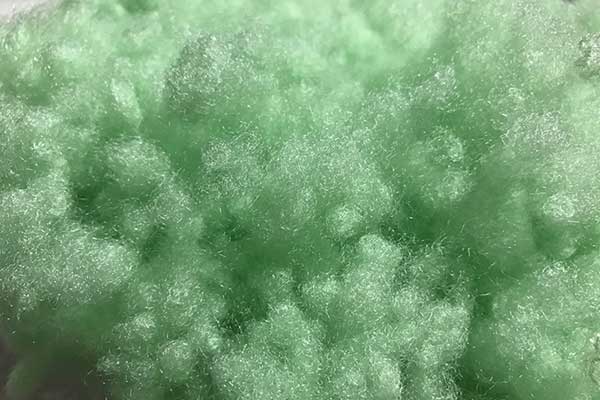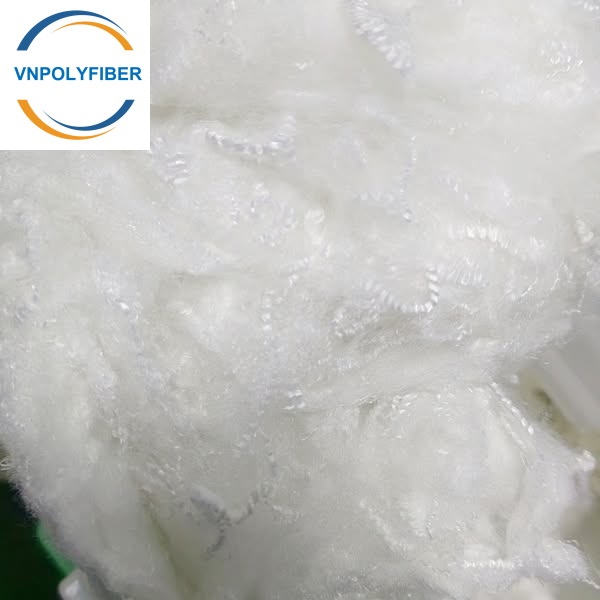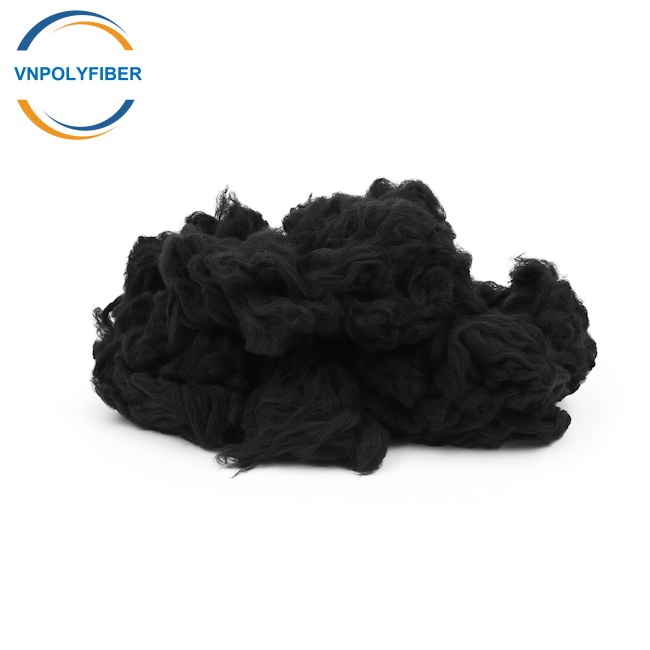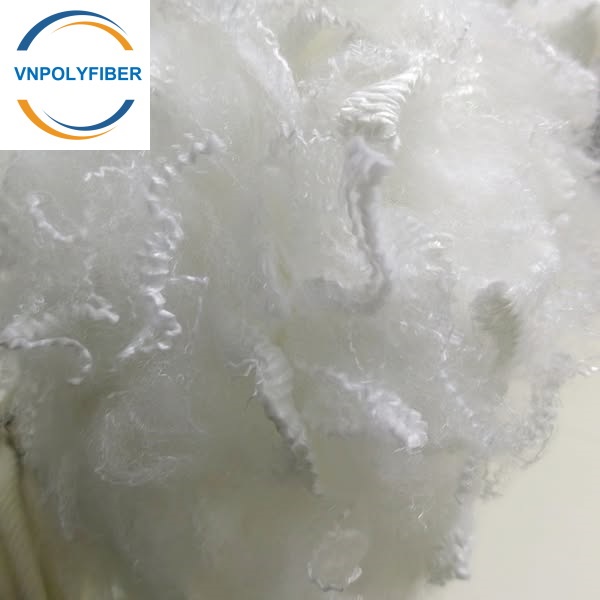Lyocell Fiber
- Lyocell fiber, often marketed under the brand name Tencel, is a type of cellulose fiber known for its sustainability, softness, and versatility.
- It is made from wood pulp, typically sourced from fast-growing eucalyptus or beech trees, through a closed-loop solvent spinning process.
PRODUCT DETAIL
What is Lyocell Fiber
Lyocell Fiber is an environmentally conscious fiber material derived from natural cellulose. The production process utilizes eco-friendly solvents and achieves a high rate of recycling to promote sustainability. Notable attributes of this fiber include exceptional softness, superior breathability, and moisture-wicking properties, ensuring a comfortable user experience. Furthermore, the fiber exhibits impressive durability and elasticity, reducing the formation of wrinkles and maintaining its sophisticated appearance. Skin-friendly and non-irritating, Tencel Lyocell Fiber is particularly suitable for individuals with sensitive skin. Through enhanced processing techniques that enhance its compatibility with various fibers, this natural material is utilized in a wide range of clothing styles, from everyday wear to luxury fashion labels, showcasing outstanding performance as well as environmental advantages. Economical and sustainable, Lyocell Fiber has emerged as a favored choice in the fashion industry.
Cellulose fiber, composed of cellulose material, can be processed and manipulated more easily during manufacturing due to its inherent viscosity. This fiber boasts excellent softness and pliability, making it versatile for various applications. Its unique properties have made it a prevalent material in textiles, paper production, biomaterials, and other industries. Widely used in textile manufacturing, cellulose fiber is instrumental in creating soft and comfortable textile products.
Additionally, cellulose fiber is inherently environmentally friendly and poses no harm to the ecosystem. Its eco-conscious attributes render it highly valuable in modern industrial applications.
Lyocell fiber has emerged as a prominent player in the textile industry, captivating manufacturers and consumers alike with its unique blend of performance and sustainability. This regenerated cellulose fiber, derived from wood pulp, offers a compelling alternative to traditional fibers, boasting an eco-friendly production process and a versatile range of applications. Let’s delve into the fascinating world of Lyocell fiber, exploring its production, properties, and diverse uses.
The Production of Lyocell: A Sustainable Approach
The production of Lyocell fiber stands out due to its environmentally conscious methodology. Unlike viscose and modal, which rely on caustic soda, Lyocell utilizes a non-toxic organic solvent, N-Methylmorpholine N-oxide (NMMO), to extract cellulose from wood pulp. This innovative approach minimizes harm to the environment.
The process involves dissolving the cellulose in NMMO and then precipitating it to form fibers. A key advantage of this method is its closed-loop system, where the NMMO solvent is efficiently recycled, reducing waste and pollution. This closed-loop system is a cornerstone of Lyocell’s sustainability.
Furthermore, the raw material for Lyocell is often sourced from sustainably managed forests, with companies like Lenzing utilizing fast-growing eucalyptus trees. This sustainable sourcing of wood pulp further enhances Lyocell’s eco-friendly profile.
In essence, the production of Lyocell fiber aligns with the principles of “green manufacturing,” minimizing environmental impact and promoting resource efficiency.
Properties of Lyocell: A Fusion of Comfort and Performance
Lyocell fiber possesses a remarkable combination of properties, drawing comparisons to both natural and synthetic fibers:
- Softness and Comfort: Lyocell is known for its exceptional softness, often compared to cotton. Its smooth fiber structure provides a gentle and comfortable feel against the skin, making it ideal for clothing and bedding.
- Strength and Durability: While offering a soft touch, Lyocell fiber is also strong and durable, even when wet. In fact, its wet strength surpasses that of viscose, enhancing its suitability for various textile applications.
- Moisture Absorption and Breathability: Lyocell exhibits excellent moisture absorption and breathability, effectively wicking away moisture from the skin. This breathability contributes to its comfort, especially in close-fitting garments.
- Drape and Luster: Lyocell fiber drapes elegantly, similar to viscose, and possesses a subtle luster, akin to silk. These aesthetic qualities make it desirable for creating stylish and flowing fabrics.
- Wrinkle Resistance and Easy Care: Lyocell fabrics tend to be less prone to wrinkling and are relatively easy to care for, adding to their practicality.
- Dyeability and Color Fastness: Lyocell fiber readily absorbs dyes, resulting in vibrant and long-lasting colors. Its good color fastness ensures that the colors remain rich even after repeated washing.
Versatile Applications: From Apparel to Industrial Uses
Lyocell fiber’s versatility has led to its adoption in a wide array of textile and non-woven applications:
- Apparel: Lyocell is used extensively in clothing, including:
- Underwear: Its softness, moisture absorption, and breathability make it ideal for intimate apparel.
- Casual wear: Shirts, t-shirts, and jeans benefit from Lyocell’s comfort, drape, and durability.
- Knitted garments: Sweaters and other knitted items showcase Lyocell’s soft hand feel and drape.
- Sportswear: Lyocell’s moisture-wicking properties enhance comfort during physical activity.
- Outerwear: Lyocell blends can be used in jackets and other outerwear for their durability and drape.
- Home Textiles: Lyocell contributes to the comfort and aesthetics of home textiles:
- Bedding: Sheets, blankets, and duvets benefit from Lyocell’s softness and moisture management.
- Upholstery: Lyocell blends can be used in upholstery fabrics for their durability and drape.
- Non-woven Applications: Lyocell’s properties make it suitable for various non-woven products:
- Hygiene products: Wet wipes, diapers, and feminine hygiene products utilize Lyocell’s absorbency and softness.
- Medical textiles: Lyocell is employed in medical dressings and other healthcare applications due to its absorbency and biocompatibility.
- Facial masks: The fiber’s softness and moisture retention are advantageous in facial masks.
- Filtration: Lyocell’s structure can be used in filter materials.
- Industrial Applications: Lyocell also finds specialized industrial uses:
- Precision instrument wipes: Its softness and absorbency make it suitable for cleaning delicate equipment.
- Food packaging: Lyocell’s biodegradability can be advantageous in certain food packaging applications.
Lyocell Blends: Enhancing Fabric Performance
Lyocell fiber readily blends with other fibers, both natural and synthetic, to create fabrics with enhanced properties.
- Lyocell and Cotton: This blend combines the softness and breathability of both fibers, resulting in comfortable and durable fabrics.
- Lyocell and Linen: Blending Lyocell with linen enhances the softness and drape of linen fabrics while retaining its strength and breathability.
- Lyocell and Silk: This blend creates luxurious fabrics with exceptional softness, drape, and luster.
- Lyocell and Wool: Combining Lyocell with wool can improve the softness, drape, and moisture management of wool fabrics.
- Lyocell and Synthetic Fibers: Blending Lyocell with synthetic fibers like polyester or nylon can enhance the strength, durability, and wrinkle resistance of the fabric.
Specialty Lyocell Fibers: Tailoring Properties for Specific Needs
Beyond standard Lyocell fiber, manufacturers have developed specialty variations to cater to specific performance requirements:
- Crosslinked Lyocell: This type of Lyocell fiber is engineered to reduce fibrillation, a tendency of standard Lyocell to develop a “peach skin” or “sanded” surface. Crosslinking enhances the fabric’s smoothness, drape, and wet strength, making it suitable for applications like knitted sweaters and high-end apparel.
- Fine Denier Lyocell: Utilizing finer fibers results in fabrics that are even softer and more delicate, enhancing their suitability for intimate apparel, facial masks, and healthcare products.
- Antibacterial Lyocell: Incorporating antibacterial agents into the fiber provides long-lasting protection against bacteria, making it ideal for underwear, infant products, and medical textiles.
- Flame Retardant Lyocell: Engineered with flame-retardant additives, this fiber offers protection in applications where fire safety is a concern, such as public spaces, protective clothing, and home textiles.
- Lyocell Fiber Tow: This form of Lyocell consists of continuous filaments, which can be chopped into shorter fibers for use in non-woven fabrics and flocking.
Lyocell’s Environmental Advantages: A Sustainable Choice
Lyocell fiber distinguishes itself as an environmentally friendly option in several ways:
- Renewable Resource: Lyocell is derived from wood pulp, a renewable resource, reducing reliance on fossil fuels.
- Sustainable Forestry: Many Lyocell producers, like Lenzing with their Tencel® brand, source wood pulp from sustainably managed forests, ensuring responsible forest management practices.
- Closed-Loop Production: The use of a closed-loop system with NMMO solvent recycling minimizes waste and pollution.
- Biodegradability: Lyocell fiber is biodegradable, meaning it can decompose naturally, reducing its long-term environmental impact.
Conclusion: Lyocell Fiber – A Fiber for the Future
Lyocell fiber represents a significant advancement in textile technology, offering a compelling combination of performance, versatility, and sustainability. Its eco-friendly production process, derived from renewable resources and utilizing a closed-loop system, sets it apart from traditional fibers. Furthermore, its desirable properties, including softness, strength, moisture absorption, and drape, make it suitable for a wide range of applications, from apparel and home textiles to non-woven products and industrial uses. As the demand for sustainable and high-performance textiles continues to grow, Lyocell fiber is poised to play an increasingly important role in shaping the future of the industry.
Read more: https://vnpolyfiber.com/lyocell-fiber/
Technical Parameter
Here are some key features and characteristics of lyocell fiber:
1. Sustainability: Lyocell production is considered environmentally friendly because it is derived from renewable wood sources and uses a closed-loop process, where the solvent used to dissolve the wood pulp is recycled and reused. The production process also requires less water and energy compared to other types of cellulose fibers.
2. Softness: Lyocell fibers have a smooth surface and a soft, luxurious feel. They are often compared to silk or cashmere for their softness and comfort against the skin.
3. Moisture absorption and wicking: Lyocell fibers have excellent moisture absorption properties, making them breathable and comfortable to wear in hot and humid conditions. They also wick moisture away from the skin, keeping the wearer dry and comfortable.
4. Strength and durability: Despite its softness, lyocell fiber is strong and durable, making it suitable for a variety of applications, including apparel, home textiles, and technical textiles.
5. Versatility: Lyocell fiber can be blended with other fibers, such as cotton, wool, or polyester, to enhance specific properties like strength, elasticity, or moisture management. It is used in a wide range of products, including clothing (such as shirts, dresses, and denim), bedding, towels, and upholstery.
Overall, lyocell fiber is valued for its sustainability, softness, and versatility, making it a popular choice among consumers and manufacturers in the textile industry who prioritize environmental responsibility and comfort.
Video
FAQ
1. What do you offer?
We produce recycled hollow conjugated siliconized and non-siliconized polyester staple fiber mainly.
We also supply home textile machineries and products at factory origin and its price.
2. What is it used for?
Our fiber is widely used in filling, non-woven fabric, spinning, bedding stuff, home textile, automotive interiors…
3. Are you a factory or a trading company?
We are a factory specialized in polyester staple fiber for many years but now we also have our own professional trading company. We will source many types of textile products such as yarn, PP fibers from others to supply our own customers as well. We also provide our own customers with other related products such as: Foam, Pillows, Cushions, Toys, Down/ Feather,…
4. Where is your factory location?
Our factory locates in the north and the south of Vietnam. You can visit us from Ho Chi Minh City and Hanoi City, Vietnam. You could contact our salesman to fetch you if visiting.
5. Can you accept free sample?
Yes, the hand sample is free when not exceed 1 kilograms. Upon price confirmation, we will provide a sample within 2-3 days; the freight cost will be charged to client.
6. Can you provide ODM service?
Yes, we work on ODM orders. Which means size, material, quantity, design, packing solution, etc, will depend on your requests, and your logo will be customized on our products.
7. How about your quality? What’s the minimum order Quantity (MOQ)?
Please try a trial order, you will know it. The MOQ is 23,000 Kilograms/order, but the price will be lower if you order bulk volume.
8. Can I mix different items in one order?
Sure, you can mix any products we can provide.
9. How can you guarantee the product quality?
We have experienced QC team. We control not only productive process but also raw material. In addition, we have different kinds of testing instrument to help us guarantee the product quality.
10. What’s the payment terms?
L/C at sight, 30% TT in advance are mostly accepted; other terms shall be negotiable by both sides
For more information, please feel free to contact :
Mr. Tony Tan
Mobile number: +84 90 466 5251 (Whatsapp/Wechat/Viber/Signal)
